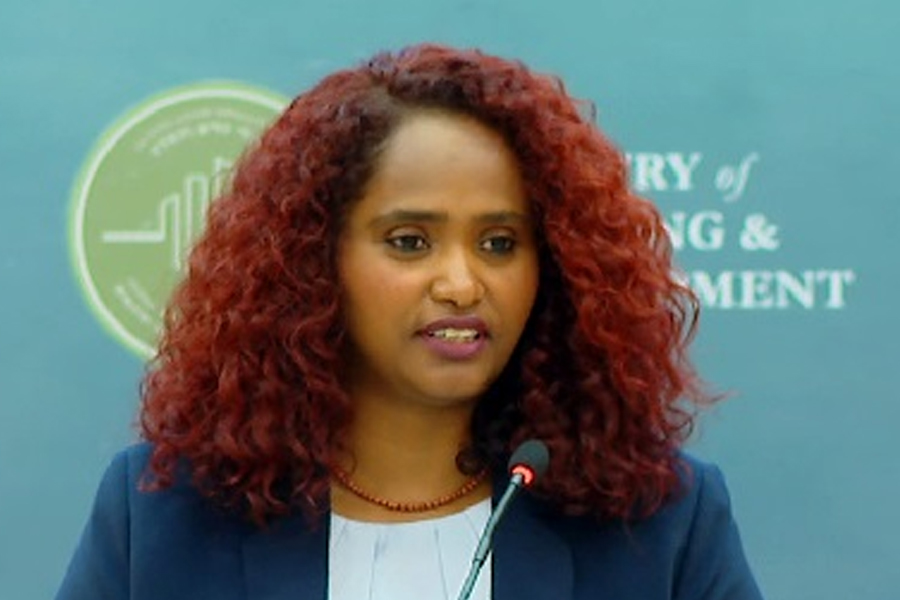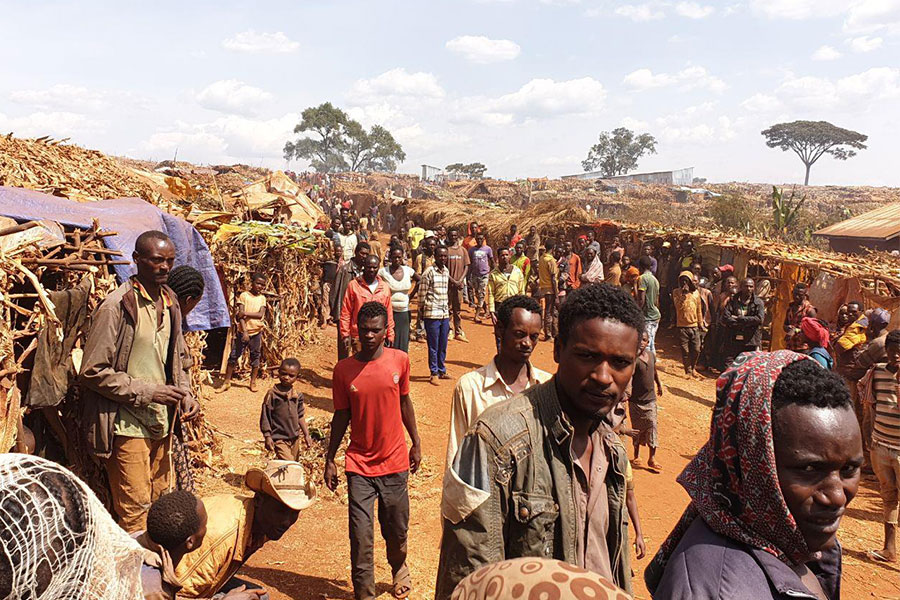
Featured | Oct 05,2019
Sep 2 , 2023
By Joseph E. Stiglitz
Right-wing populism is surging globally, exploiting fractures in democracies worldwide. Voters cannot wait for the next election cycle to demand change. Economic reforms that benefit everyone and political systems that are truly by the people, for the people, are needed, writes Joseph E. Stiglitz, a Nobel laureate in economist and a professor at Columbia University, in this commentary provided by Project Syndicate (PS).
There has been much handwringing about the retreat of democracy and the rise of authoritarianism in recent years – and for good reason. From Hungarian Prime Minister Viktor Orban to former Brazilian President Jair Bolsonaro and former US President Donald Trump, we have a growing list of authoritarians and would-be autocrats who channel a curious form of right-wing populism.
Though they promise to protect ordinary citizens and preserve longstanding national values, they pursue policies that protect the powerful and trash longstanding norms – and leave the rest of us trying to explain their appeal. While there are many explanations, one that stands out is the growth of inequality, a problem stemming from modern neoliberal capitalism, which can also be linked in many ways to the erosion of democracy.
Economic inequality inevitably leads to political inequality, albeit varying degrees across countries. In a country like the United States, which has virtually no constraints on campaign contributions, "one person, one vote" has morphed into "one dollar, one vote." This self-reinforcing political inequality leads to policies that further entrench economic inequality. Tax policies favour the rich, the education system favours the already privileged, and inadequately designed and enforced antitrust regulation tends to give corporations free rein to amass and exploit market power.
Moreover, since the media is dominated by private companies owned by plutocrats like Rupert Murdoch, much of the mainstream discourse tends to entrench the same trends. News consumers thus have long been told that taxing the rich harms economic growth, that inheritance taxes are levies on death, and so forth.
More recently, traditional media controlled by the super-rich have been joined by social media companies controlled by the super-rich, except that the latter are even less constrained in spreading misinformation. US-based companies cannot be held liable (Section 230 of the 1996 Communications Decency Act) for third-party content hosted on their platforms – or for most of the other social harms they cause (not least to teenage girls).
In this context of capitalism without accountability, should we be surprised that so many people view the growing concentration of wealth with suspicion or that they believe the system is rigged?
The pervasive feeling that democracy has delivered unfair outcomes, has undermined confidence in democracy, and led some to conclude that alternative systems might produce better results. This is an old debate.
Seventy-five years ago, many wondered whether democracies could grow as fast as authoritarian regimes. Many are asking the same question now about which system "delivers" greater fairness. Yet this debate is unfolding in a world where the very wealthy have the tools to shape national and global thinking, sometimes with outright lies ("The election was stolen!" "The voting machines were rigged!" – a falsehood that cost Fox News 787 million dollars).
One of the results has been deepening polarisation, which hampers the functioning of democracy – especially in countries like the US, with its winner-take-all elections. By the time Trump was elected in 2016 with a minority of the popular vote, American politics, which once favoured problem-solving through compromise, had become a bald-faced partisan power struggle, a wrestling match where at least one side seems to believe there should be no rules.
When polarisation becomes so excessive, it will often seem as though the stakes are too high to concede anything. Rather than looking for common ground, those in power will use the means at their disposal to entrench their own positions – as the Republicans have done openly through gerrymandering and measures to suppress voter turnout.
Democracies work best when the perceived stakes are neither too low nor too high (if they are too low, people will feel little need to participate in the democratic process). There are design choices that democracies can make to improve the chances of hitting this happy medium. Parliamentary systems, for example, encourage coalition building and often give power to centrists rather than extremists. Mandatory and ranked-choice voting also have been shown to help in this respect, as does the presence of a committed, protected civil service.
The US has long held itself up as a democratic beacon. Though there has always been hypocrisy – from Ronald Reagan cosying up to Augusto Pinochet, to Joe Biden failing to distance himself from Saudi Arabia or denounce the anti-Muslim bigotry of Indian Prime Minister Narendra Modi's government – America at least embodied a shared set of political values.
But now, economic and political inequality has grown so extreme that many reject democracy. This is fertile ground for authoritarianism, especially for the kind of right-wing populism that Trump, Bolsonaro, and the rest represent. But such leaders have shown that they have none of the answers that discontented voters seek. On the contrary, the policies they enact when given power only make matters worse.
Rather than looking elsewhere for alternatives, we need to look inward at our own system.
With the right reforms, democracies can become more inclusive, more responsive to citizens, and less responsive to the corporations and wealthy individuals who currently hold the purse strings. But salvaging our politics also will require equally dramatic economic reforms. We can begin to enhance the well-being of all citizens fairly – and take the wind out of populists' sails – only when we leave neoliberal capitalism behind and do a much better job at creating the shared prosperity we acclaim.
PUBLISHED ON
Sep 02,2023 [ VOL
24 , NO
1218]


Featured | Oct 05,2019

Viewpoints | Jun 25,2022

Editorial | Aug 16,2020

Life Matters | Mar 16,2024

Fortune News | Sep 22,2024

Commentaries | Jun 01,2024

Life Matters | Aug 10,2024

Covid-19 | Aug 08,2020

Viewpoints | Jun 17,2023

Featured | Apr 26,2019

Photo Gallery | 180344 Views | May 06,2019

Photo Gallery | 170542 Views | Apr 26,2019

Photo Gallery | 161578 Views | Oct 06,2021

My Opinion | 137274 Views | Aug 14,2021

Dec 22 , 2024 . By TIZITA SHEWAFERAW
Charged with transforming colossal state-owned enterprises into modern and competitiv...

Aug 18 , 2024 . By AKSAH ITALO
Although predictable Yonas Zerihun's job in the ride-hailing service is not immune to...

Jul 28 , 2024 . By TIZITA SHEWAFERAW
Unhabitual, perhaps too many, Samuel Gebreyohannes, 38, used to occasionally enjoy a couple of beers at breakfast. However, he recently swit...

Jul 13 , 2024 . By AKSAH ITALO
Investors who rely on tractors, trucks, and field vehicles for commuting, transporting commodities, and f...

Nov 1 , 2025
The National Bank of Ethiopia (NBE) issued a statement two weeks ago that appeared to...

Oct 25 , 2025
The regulatory machinery is on overdrive. In only two years, no fewer than 35 new pro...

Oct 18 , 2025
The political establishment, notably the ruling party and its top brass, has become p...

Oct 11 , 2025
Ladislas Farago, a roving Associated Press (AP) correspondent, arrived in Ethiopia in...

Nov 2 , 2025
The National Bank of Ethiopia (NBE) has scrapped the credit-growth ceiling that had s...

Nov 2 , 2025 . By SURAFEL MULUGETA
The burgeoning data mining industry is struggling with mounting concerns following th...

Nov 2 , 2025 . By YITBAREK GETACHEW
Berhan Bank has chosen a different route in its pursuit of a new headquarters, opting for a transitional building instea...

Nov 2 , 2025 . By BEZAWIT HULUAGER
Nib International Bank S.C. has found itself at the epicentre of a severe governance...